 Update on Course Reading Lists
Update on Course Reading Lists
The Library and Information Service in collaboration with the Centre for Learning Technologies and other learning and teaching support divisions, has implemented a SUNLearn integrated course reading system to allow for the better administration of reading lists in an e-learning environment. Course Reading Lists, powered by Leganto® from Ex Libris, allows lecturers to build and manage the reading lists for their courses directly from within SUNLearn. Lecturers from the Departments of Educational Psychology, Music, Geography and Environmental Studies, the School of Accountancy, the Division of Molecular Biology and Human Genetics and the Faculty of Theology, participated in the implementation of the system which went live on 1 December 2020.
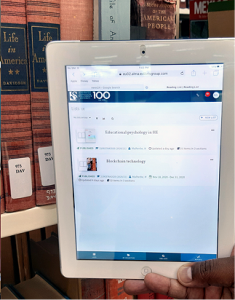 Leganto® allows lecturers to include diverse content from the Library and elsewhere, such as books, articles, open educational resources, websites, streaming media, digitised content and course notes, in a single list. In doing so, Course Reading Lists adds both print and electronic materials to the same lists and shows the real-time availability of both. Student usage reports are also available to help lecturers determine how effective their reading lists are and what materials students engage with most, through views, comments and likes.
Leganto® allows lecturers to include diverse content from the Library and elsewhere, such as books, articles, open educational resources, websites, streaming media, digitised content and course notes, in a single list. In doing so, Course Reading Lists adds both print and electronic materials to the same lists and shows the real-time availability of both. Student usage reports are also available to help lecturers determine how effective their reading lists are and what materials students engage with most, through views, comments and likes.
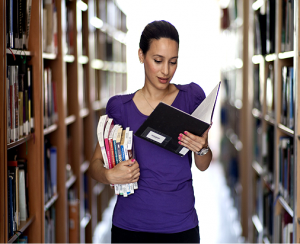 Students access Course Reading Lists from within their course in SUNLearn. They can interact with their lists by marking citations as read and liking those citations which they enjoy. If enabled by the lecturer, students can view upcoming due dates by when material needs to be read and can partake in student discussions on their lists. This new integrated course reading system comes at a time when students need to engage more with their lecturers through the SUNLearn system.
Students access Course Reading Lists from within their course in SUNLearn. They can interact with their lists by marking citations as read and liking those citations which they enjoy. If enabled by the lecturer, students can view upcoming due dates by when material needs to be read and can partake in student discussions on their lists. This new integrated course reading system comes at a time when students need to engage more with their lecturers through the SUNLearn system.
To learn more about Course Reading Lists and to get started on your own, please visit https://libguides.sun.ac.za/readinglists.
Lecturers and facilitators of courses who wish to make use of this new feature to improve their course reading list administration in 2021, can contact Natasja Malherbe (Manager: Digital Library Systems), tel. +27 21 808-2845 or their faculty librarian.
Wouter Klapwijk
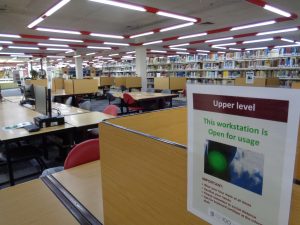 Update on Library services
Update on Library services
The libraries that are currently open for services, including research and study, are: SU Library, Engineering and Forestry Library, Medicine and Health Sciences Library, Music Library and USBL (Bellville Park Campus Library).
Read here the details about opening hours, booking a visit as well as services and resources that are offered.
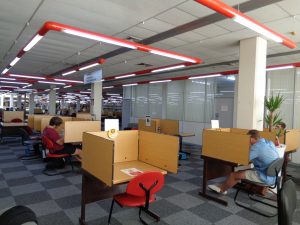 SU Library service
SU Library service
The Stellenbosch University (SU) Library building is available for a limited number of clients at a time to use computers and spaces for study and research. Clients are also welcome to bring their own devices.
Clients may use the library’s online booking system to book to browse for books in the SU Library. Clients who are interested in utilising this option must place a booking 24 hours in advance of the desired time. The relevant Faculty Librarian will then contact the client to explain the relevant procedures. Please note that Monday bookings must be verified on the previous Friday.

To ensure adherence to Covid-19 protocols, the total number of clients allowed in the library is monitored. Clients are therefore required to book time slots via the library’s online booking system. Further details can be found here.
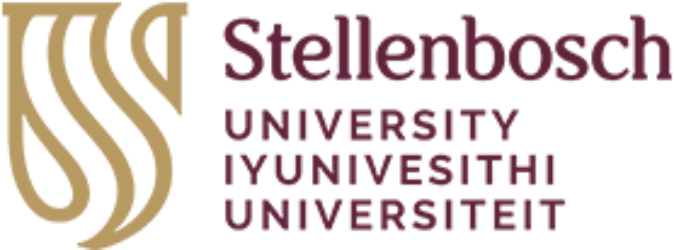
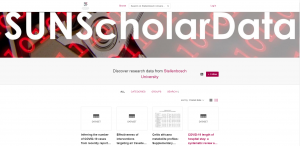
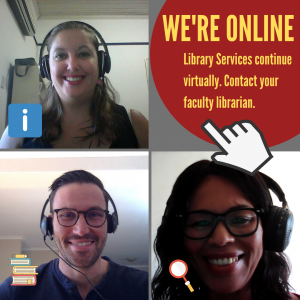
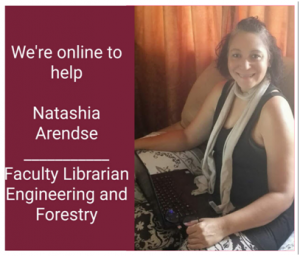 When Covid-19 lockdown kicked in, the situation drastically changed and suddenly librarians were forced out of their comfort zones. Ice-cream floats started to melt. Not for long though… Training for the 2020 academic year was an ongoing concern, because SU management was adamant that the 2020 academic year would be completed successfully. Librarians therefore had to step up, adapt and create new comfort zones using online collaboration tools such as Microsoft Teams.
When Covid-19 lockdown kicked in, the situation drastically changed and suddenly librarians were forced out of their comfort zones. Ice-cream floats started to melt. Not for long though… Training for the 2020 academic year was an ongoing concern, because SU management was adamant that the 2020 academic year would be completed successfully. Librarians therefore had to step up, adapt and create new comfort zones using online collaboration tools such as Microsoft Teams.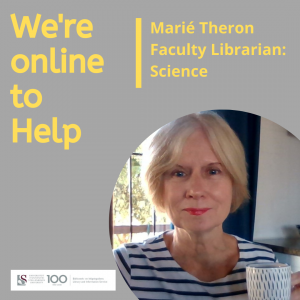 Faculty librarians quickly learned the Teams tools of the trade and learnt a valuable lesson along the lockdown route: find a library buddy to assist you with technical challenges such as log-in problems, connecting latecomers and answering chat questions during Teams training sessions. Ice-cream floats to all trainers during lockdown.
Faculty librarians quickly learned the Teams tools of the trade and learnt a valuable lesson along the lockdown route: find a library buddy to assist you with technical challenges such as log-in problems, connecting latecomers and answering chat questions during Teams training sessions. Ice-cream floats to all trainers during lockdown.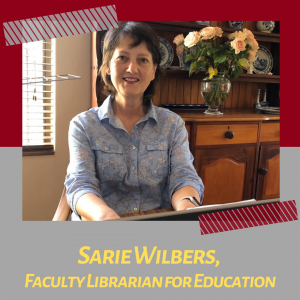 Client assistance meltdown averted
Client assistance meltdown averted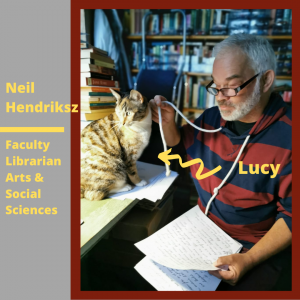 Fortunately, faculty librarians’ service commitment went into overdrive: support your clients by whatever means necessary (within the law, of course). Call it over-servicing or assisting, but desperate times call for desperate measures. Faculty librarians had to ensure the clients’ 2020 academic year stayed afloat. Practical example: With support from Technical Services, clients received access to new e-books at the speed of lightning. Ice-cream floats to the Technical Services colleagues.
Fortunately, faculty librarians’ service commitment went into overdrive: support your clients by whatever means necessary (within the law, of course). Call it over-servicing or assisting, but desperate times call for desperate measures. Faculty librarians had to ensure the clients’ 2020 academic year stayed afloat. Practical example: With support from Technical Services, clients received access to new e-books at the speed of lightning. Ice-cream floats to the Technical Services colleagues.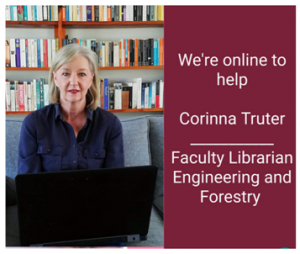 Library access meltdown averted
Library access meltdown averted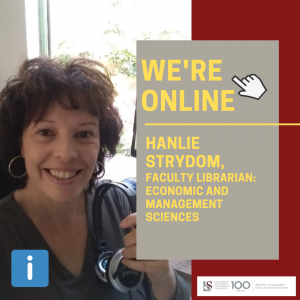 The circulation staff were crucial to welcome our clients back and ensure everyone’s safety in the libraries. The circulation staff all deserve ice-cream floats for their professional, patient, and friendly (but firm) welcoming of returning clients to the libraries.
The circulation staff were crucial to welcome our clients back and ensure everyone’s safety in the libraries. The circulation staff all deserve ice-cream floats for their professional, patient, and friendly (but firm) welcoming of returning clients to the libraries. It just goes to show what great teamwork can accomplish.
It just goes to show what great teamwork can accomplish.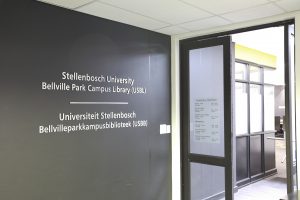
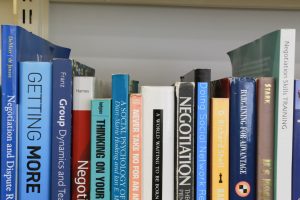 need to submit a list of the books to the circulation desk (contact details in above notice) before visiting the library. They will be contacted when the books are ready and the circulation staff will book a time for them to collect the books.
need to submit a list of the books to the circulation desk (contact details in above notice) before visiting the library. They will be contacted when the books are ready and the circulation staff will book a time for them to collect the books.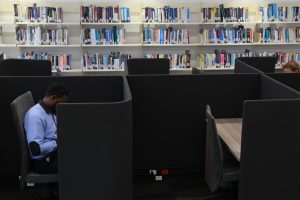 Clients are welcomed back to the libraries for study and research purposes. We are here to support you to successfully complete your academic year.
Clients are welcomed back to the libraries for study and research purposes. We are here to support you to successfully complete your academic year.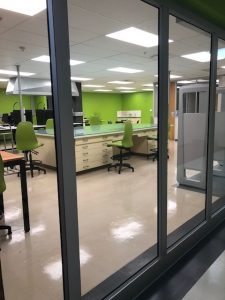 Much progress has been made on the new Makerspace area in the Stellenbosch University Library. January 2021 is the new date that clients can look forward to the opening of this service. The Makerspace will support research creativity and innovation, drawing together students with ideas and those with the technical skills to turn them into reality.
Much progress has been made on the new Makerspace area in the Stellenbosch University Library. January 2021 is the new date that clients can look forward to the opening of this service. The Makerspace will support research creativity and innovation, drawing together students with ideas and those with the technical skills to turn them into reality.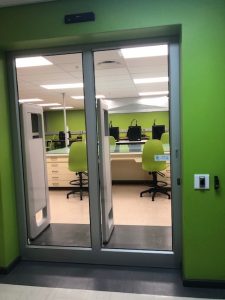
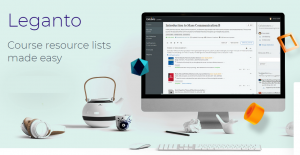 By implementing Leganto the Library aims to proactively assist lecturers to create and maintain course readings by adding both print and electronic materials to the same list and showing real-time availability of both. It will assist lecturers in their blended learning offering for the modules for which they are responsible by embedding reading lists as a component of lecturer workflows and not as a separate system that the lecturer needs to access. As described in the application to the SU Strategic Fund, after 1 December 2020 the adoption process will continue into 2021 for full adoption across all possible modules by 2023.
By implementing Leganto the Library aims to proactively assist lecturers to create and maintain course readings by adding both print and electronic materials to the same list and showing real-time availability of both. It will assist lecturers in their blended learning offering for the modules for which they are responsible by embedding reading lists as a component of lecturer workflows and not as a separate system that the lecturer needs to access. As described in the application to the SU Strategic Fund, after 1 December 2020 the adoption process will continue into 2021 for full adoption across all possible modules by 2023. Mr Siviwe Bangani was appointed as Director: Research Services in the Library and Information Service, SU, from 1 April 2020. Siviwe previously worked at the North-West University Library and Information Service as a Manager: Information Services (Mafikeng Campus). Siviwe was the 2018 LIASA Librarian of the Year. At the time of joining SU, he was the chair-elect of the LIASA North-West Branch.
Mr Siviwe Bangani was appointed as Director: Research Services in the Library and Information Service, SU, from 1 April 2020. Siviwe previously worked at the North-West University Library and Information Service as a Manager: Information Services (Mafikeng Campus). Siviwe was the 2018 LIASA Librarian of the Year. At the time of joining SU, he was the chair-elect of the LIASA North-West Branch.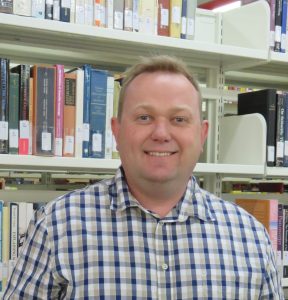 Mr Norman Hebler was appointed as Junior Librarian: Information Literacy and Learning Commons with effect from 1 December 2019. Norman is originally from Limpopo and studied at the University of Pretoria for his BA. After working in the UK, he came to Cape Town where he worked in the private sector. Thereafter, he joined Library IT at UCT Libraries where he worked for 10 years before joining SU.
Mr Norman Hebler was appointed as Junior Librarian: Information Literacy and Learning Commons with effect from 1 December 2019. Norman is originally from Limpopo and studied at the University of Pretoria for his BA. After working in the UK, he came to Cape Town where he worked in the private sector. Thereafter, he joined Library IT at UCT Libraries where he worked for 10 years before joining SU. Mr Sarfaraz Mohamed was appointed as Linux Systems Administrator with effect from 1 July 2020. Sarfaraz previously worked in the ICT Division at SU in the Linux Team. He has worked on various projects from SUNLearn to security and vulnerability patching. His role is to manage the Linux infrastructure at the Library and to maintain and improve the overall Linux systems.
Mr Sarfaraz Mohamed was appointed as Linux Systems Administrator with effect from 1 July 2020. Sarfaraz previously worked in the ICT Division at SU in the Linux Team. He has worked on various projects from SUNLearn to security and vulnerability patching. His role is to manage the Linux infrastructure at the Library and to maintain and improve the overall Linux systems.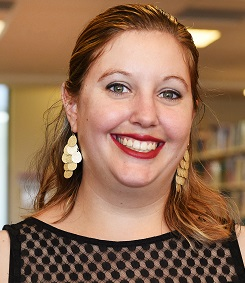 On Thursday 21 May, Elizabeth Moll-Willard (Faculty Librarian: AgriSciences) presented part of a webinar titled “Setting students up for success with science literacy”. Elizabeth spoke about creating a self-directed course for postgraduate students to equip themselves with essential research and information literacy skills.
On Thursday 21 May, Elizabeth Moll-Willard (Faculty Librarian: AgriSciences) presented part of a webinar titled “Setting students up for success with science literacy”. Elizabeth spoke about creating a self-directed course for postgraduate students to equip themselves with essential research and information literacy skills.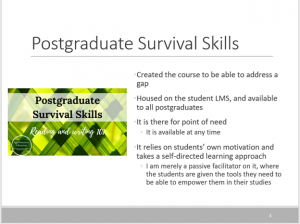 The course was created with Kathryn Wirth’s input (the Blended Learning Co-ordinator for the AgriSciences faculty) and placed on the SUNLearn postgraduate module. The point of need, standalone course covers the following areas:
The course was created with Kathryn Wirth’s input (the Blended Learning Co-ordinator for the AgriSciences faculty) and placed on the SUNLearn postgraduate module. The point of need, standalone course covers the following areas: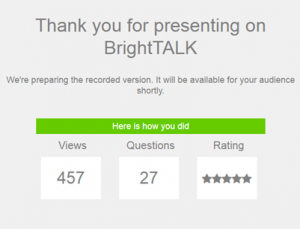 The webinar was well attended, with 457 participants, and the rating received from most participants was 5 stars. The presentation also resulted in a Library Connect blog article which can be viewed
The webinar was well attended, with 457 participants, and the rating received from most participants was 5 stars. The presentation also resulted in a Library Connect blog article which can be viewed 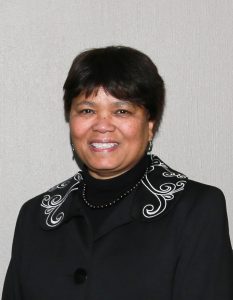 “Fake news will remain with us” – this is the view of Ms Ellen Tise, Senior Director of the Library and Information Service of Stellenbosch University (SU), who was sharing her perspective on the role of libraries in the fight against misinformation as part of a UN Library international panel.
“Fake news will remain with us” – this is the view of Ms Ellen Tise, Senior Director of the Library and Information Service of Stellenbosch University (SU), who was sharing her perspective on the role of libraries in the fight against misinformation as part of a UN Library international panel.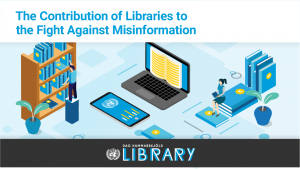 The role of libraries in the fight against fake news has been mainly around creating awareness, providing credible information resources, sensitising library clients to the harmful effects of fake news and empowering people to differentiate fact from fiction. Ms Tise was in the company of three other esteemed panelists from other countries.
The role of libraries in the fight against fake news has been mainly around creating awareness, providing credible information resources, sensitising library clients to the harmful effects of fake news and empowering people to differentiate fact from fiction. Ms Tise was in the company of three other esteemed panelists from other countries.